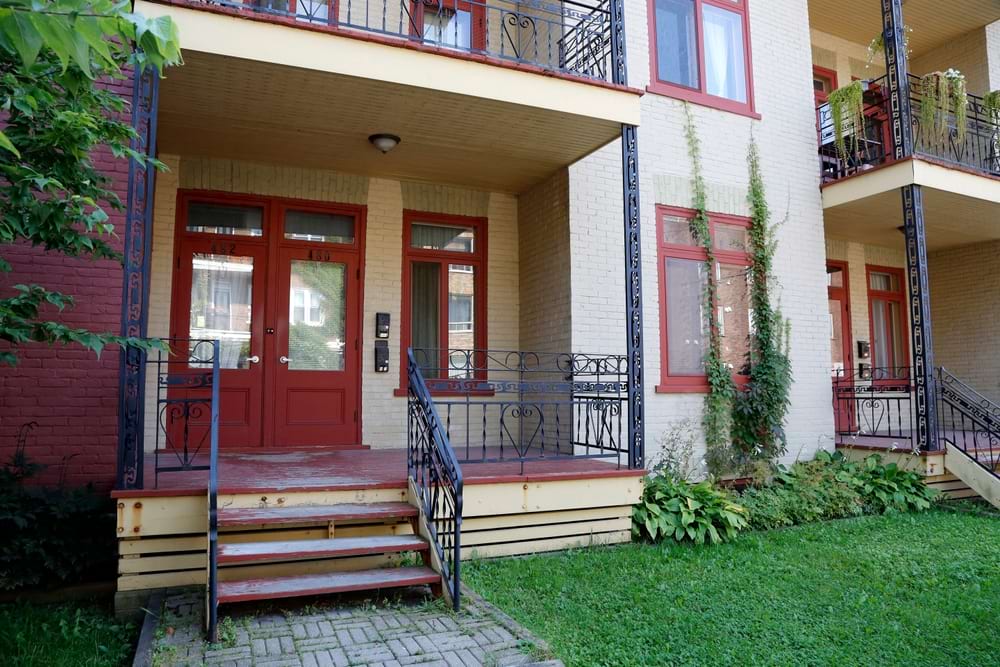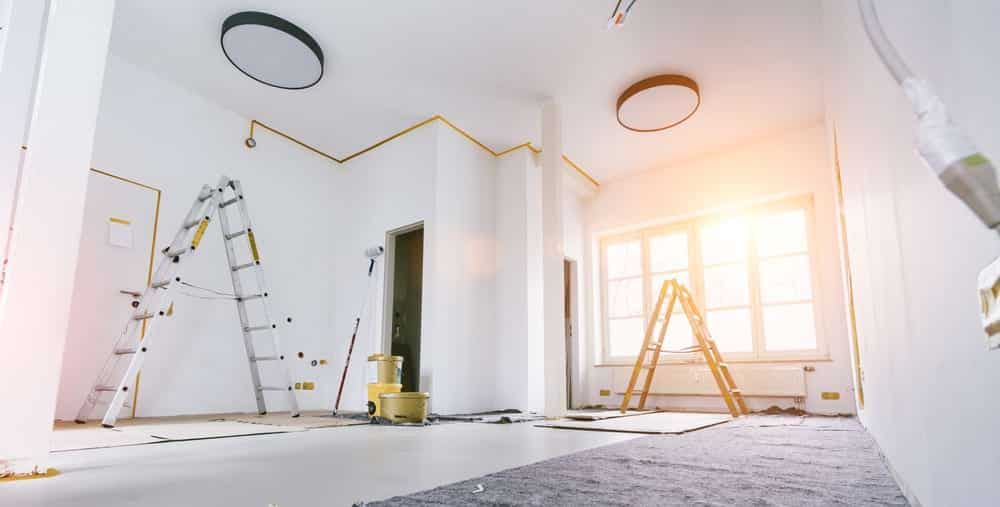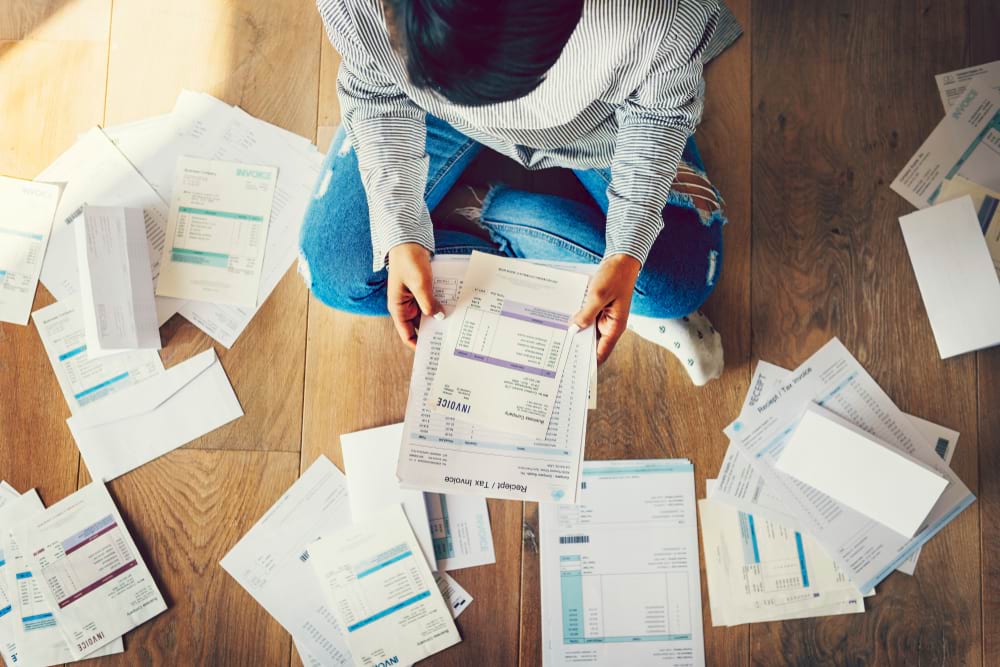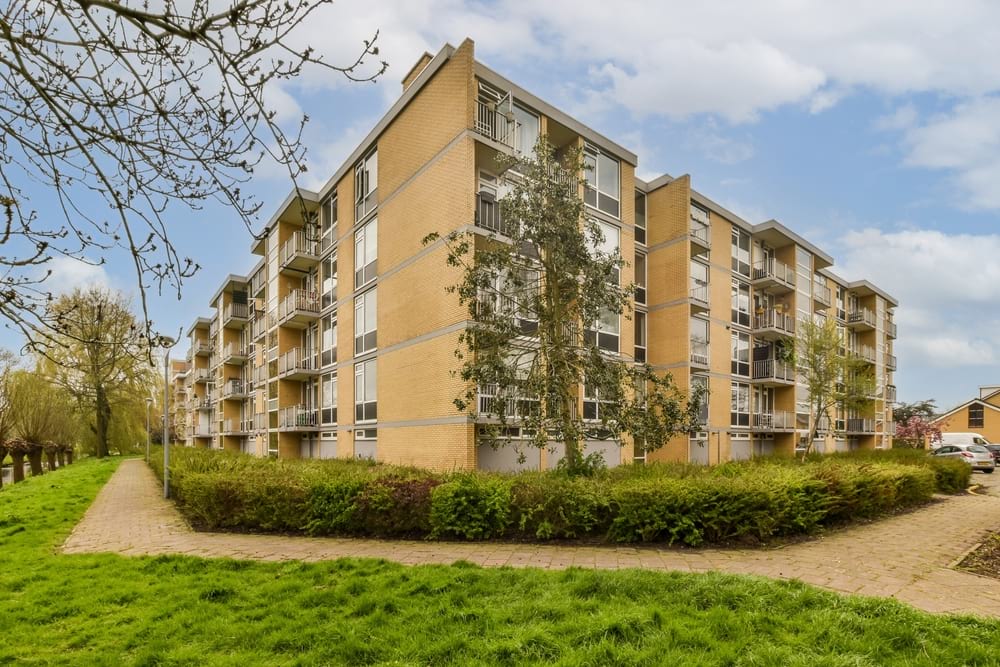You can find dozens of different types of flats in the United Kingdom.
Ground-floor flats are by definition one of the least common types of flat.
Not every building with flats even has one.
But if you currently own one, it’s only natural to wonder how easy it’ll be to sell.
Read on to find out.
What is a ground-floor flat?
A ground-floor flat is a flat located on the ground floor of a building.
It’s on the same level as the surrounding ground. So, no stairs or lifts are needed to access it. (Of course, a few steps might be required.)
It usually has no flats beneath it unless there’s an underground level(/s).
It’s not to be confused with a first-floor flat, which is one level higher. (Many places outside the UK use ‘first-floor’ to designate the ground floor.)
Does every block of flats have a ground-floor unit?
No. Some blocks of flats will use ground floors for purposes other than flats, such as:
- A lobby area, including a front desk
- A stairway or lift to the higher floors
- A postal area.
When ground floor flats are more likely to appear
Ground-floor flats are practical for elder homeowners and those with disabilities. So, retirement complexes and care homes often have them.
Is it difficult to sell a ground-floor flat?
It’s challenging to find data to prove it, but anecdotal evidence suggests that ground-floor flats are harder to sell than other types of flat.
Research from 2015 found that only 5% of those surveyed would choose to live in a ground-floor or lower ground floor (i.e., underground) flat.
In other words, it may take longer to sell them.
This is mainly because buyers are concerned about:
- Privacy
- Security
- Noise
- Low natural light
- Dampness.
Exception to the rule
Most maisonettes are on the ground floor. On average, they take only 34 days to sell, which is a significantly shorter time frame that other flats.
Are ground-floor flats more or less valuable?
Being on the ground floor is often – but not always – a factor that decreases a flat’s vlaue.
In fact, data from the above research found that ground-floor flats sell for 10% less than an equivalent flat on the first floor.
Remember, the exact price difference varies for each case.
For example, if the flat on the ground floor has a private entrance to a garden, there might be no price difference at all. It may even cost more than flats above it.
Advantages of ground-floor flats
Accessibility
Ground floor flats are ideal for older people with mobility issues, or for people in a wheelchair.
Convenience
These flats also give you extra convenience as a user. You don’t need to wait several minutes for a lift to arrive in the entrance hall or climb stairs.
(Often) no neighbours below
Flats at higher levels are at risk of being disturbed by noisy neighbours beneath you. This isn’t a concern for ground-floor flats, unless there’s a basement.
Lower buying price
And lastly, the lower price means that, if you’re a buyer, you could get it for less than an equivalent at a higher level. This is ideal for people on a smaller budget.
Disadvantages of a ground-floor flat
Security
A major disadvantage is security risks. Most people looking for a flat are aware of this.
Some figures suggest floor flats are 48% more likely to be burgled.
Privacy
There’s less privacy with a ground floor flat, too.
For example, you’ll need to close your windows whenever you’re getting changed. And your shadow can sometimes show through the curtains.
Damp
Ground floor flats are more vulnerable to damp. This can affect the smell and appearance of your flat.
It can get onto your clothes and involve extra costs to fix.
Noise from road
Most ground floor flats are noisier, too. because they’re closer to the road. Cars and people will often be going past your window.
Less natural light
You usually get less natural light in a ground floor flat.
Obstructions such as other buildings, trees, walls, etc., can block or limit sunlight, especially in cities and towns.
Tips for selling a ground-floor flat
Most tips for selling a regular flat apply to tips for selling ground-floor flats. However, there are some essential differences.
Check for damp
You should inspect the flat for dampness before you sell it. If it’s present, fix it in the days leading up to viewings.
Even if you must disclose it during the sale, it’s best if it isn’t visible when your buyer looks around.
Choose an optimal asking price
You’ll need to be realistic about how you price your flat. You can’t often expect the same price as an equivalent property on the floor above.
Be prepared to compromise by around 5%. An independent valuer can guide you on this further.
Market to the right buyers
Ask your estate agent if they know of any elderly people or people with mobility issues looking for a flat. Yours could be ideal for them.
Add features
It might be worth installing extra security measures before you list the property. The same could apply to soundproof walls.
Measure your costs carefully to ensure you make a return on investment. It could make your ground floor flat more attractive to buyers.
Stage well & curb appeal
If you have a private entrance to a garden area, this is one of the best features of your ground-floor flat. Make sure you stage the entrance well and maximise its curb appeal.




















